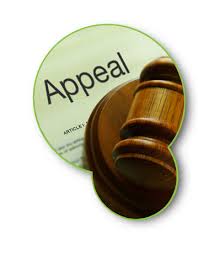How to appeal a local court decision
Generally, most decisions made by any local court in NSW can be appealed to a higher court. The local court of NSW decides many legal disputes, including criminal charges, civil litigiation, decisions of the RTA/RMS, appeals from the CTTT and many more.
However, the local court of NSW is largely tasked with deciding Criminal and Traffic charges. Daily, each of our many local courts makes countless decisions that relate to those who have been charged with Criminal or Traffic offences.
Quite often however, the decision is not final. Those who do not agree with the decision of the magistrate have the option to appeal to the District Court.
Here are some situations you may find useful in understanding when and how you may appeal a local court decision:
How to appeal a local court decision when you are convicted of a criminal offence
Where a defendant was present when convicted and sentenced, appeal is made to the District Court. Appeals can be made against the conviction and or sentence or both.
The time limit for a District Court appeal is 28 days after date of conviction or sentence. Leave to appeal can be made up to three months after the date of conviction and sentence.
There are two types of appeals against a decision of the local court in a Criminal case: a severity appeal, and a conviction appeal.
Severity Appeals: How to appeal a local court decision when you feel the sentence was too harsh
Every magistrate is different. Each will have their own views on the seriousness of the charges, and what the appropriate penalty will be. They are only human.
Some magistrates can be particularly harsh compared to others, which can often conflict with the advice that an accused person receives from his lawyer about the likely penalty they should receive.
Fortunately, if you feel you have been treated harshly, or unfairly, you have the right to appeal against the sentence.
In the District Court, the evidence that was presented in the local court will again be presented to the District Court Judge hearing the case. If you have new material, that can also be added to the material to be given to the judge. Oral evidence to support your case can also be heard.
Following arguments by both the prosecution and defence, the judge will make a decision whether to allow the appeal, or dismiss it.
For more information on the different types of penalties a local court can impose, go to:
https://lylawyers.com.au/criminal-law/penalties/
Conviction Appeals: How to appeal a local court decision following a finding of guilt after a defended hearing
If you have pleaded “not guilty” to a charge in the local court, and the evidence is heard before a magistrate in the local court, you can appeal against the finding of guilt and conviction by the magistrate.
Your appeal will be sent to the District Court for hearing by a Judge.
This is a far more complicated process than that of a “severity appeal”.
The appeal Judge will decide questions of evidence admissibility and the magistrates decisions in the local court.
The Judge will decide whether to allow the appeal, dismiss the appeal, or remit the case back to the local court for re-hearing.
Will I get a heavier sentence if I appeal and am unsuccessful?
It is rare that a appellant receives a heavier penalty in the higher court, if they are unsuccessful in their appeal.
Before sentencing a person to a heavier penalty, the Judge is required to give the person a warning, that should he/she continue with the appeal, a heavier penalty will be imposed. This is called a “parker warning”.
This will give you and your lawyer the opportunity to reconsider your appeal and withdraw it without receiving a heavier penalty.
Bail applications: How to appeal a local court decision following a refusal of bail
If the Local Court has refused someone bail, an application can be made to the Supreme Court of NSW to consider the grant of bail.
If is important that you speak to an experienced Criminal Lawyer about applying for bail in the Supreme Court of NSW.
If you feel that you have been harshly treated by a Magistrate in a Local Court in NSW, call LY Lawyers on 1300 595 299 for a free consultation.
We will give you an honest opinion on your prospects of success.







